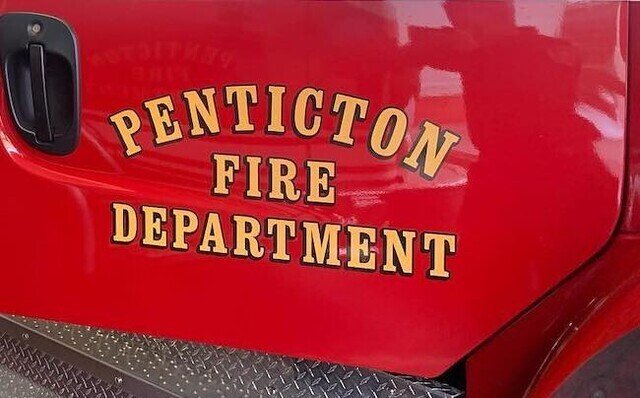Penticton council has approved the next steps to move forward with a major fire hall renewal plan that aims to improve safety, training, and emergency response across the city. The decision includes submitting a grant application and developing a funding strategy for the multimillion-dollar project.
The initiative is part of the city’s Civic Places and Spaces strategy, a long-term plan to update and modernize community infrastructure. Under the new approach, the city will build a Fire Hall Headquarters at the Fire Hall #2 site and carry out upgrades at Fire Hall #1. Once complete, Fire Hall #1 will serve as both a satellite station and the base for the city’s Emergency Operations Centre.
City officials say the upgrades are essential because the existing buildings are outdated and no longer meet modern standards. The planned facilities will be designed to support faster response times, better training, and improved health and safety for firefighters. They will also strengthen the city’s ability to deal with emergencies and protect residents.
Fire Chief Mike Larsson explained that the project is a vital step for the community’s future. He stressed that his team needs access to facilities built for today’s standards, especially as Penticton continues to grow and face new challenges. According to Larsson, the upgrades will allow crews to respond more quickly, train more effectively, and operate in a safer environment.
The project carries a total cost of around $38 million. To help fund the investment, the city plans to apply for up to $7 million through the Strategic Priorities Fund. This grant program is designed to support critical community projects, and city officials believe the fire hall renewal project is a strong candidate.
Alongside the grant application, a broader funding strategy is also being prepared. The approach will focus on covering the annual debt payments connected with the project. These details will be reviewed during the 2026–2030 financial plan budget discussions scheduled for later this fall. Council members emphasized that long-term planning is key to ensuring that the investment is sustainable and does not place an unexpected burden on taxpayers.
The renewal of the fire halls is more than just a construction project. It reflects a shift in how communities prepare for emergencies and natural disasters. Modern fire stations are designed to support advanced technology, provide safe spaces for training, and protect the well-being of firefighters who face increasing risks on the job. By creating a purpose-built headquarters and strengthening its emergency operations, Penticton is investing in both its present and future resilience.
In recent years, many communities across the country have faced challenges linked to outdated emergency infrastructure. Older fire halls often lack the space, technology, and health safeguards needed for modern firefighting. By moving forward with this renewal project, Penticton aims to avoid those problems and set an example for other cities.
For residents, the changes mean greater confidence in the city’s ability to respond to emergencies. Upgraded facilities will allow firefighters to use modern equipment, carry out specialized training, and coordinate responses more effectively. The addition of a dedicated Emergency Operations Centre at Fire Hall #1 will also give city leaders a central hub to manage crises and protect the community during natural disasters or large-scale incidents.
City council members said they recognize the importance of balancing the high cost of the project with the long-term benefits. While $38 million is a significant investment, they argue that ensuring firefighter safety, faster response times, and stronger emergency management is essential for the community.
With the approval now in place, the city will move quickly to finalize its grant application and refine its funding strategy. The next major steps will be taken during this year’s financial planning sessions, where the fire hall renewal project will be a top priority. If successful, the upgrades are expected to provide lasting benefits for both firefighters and the wider community.

